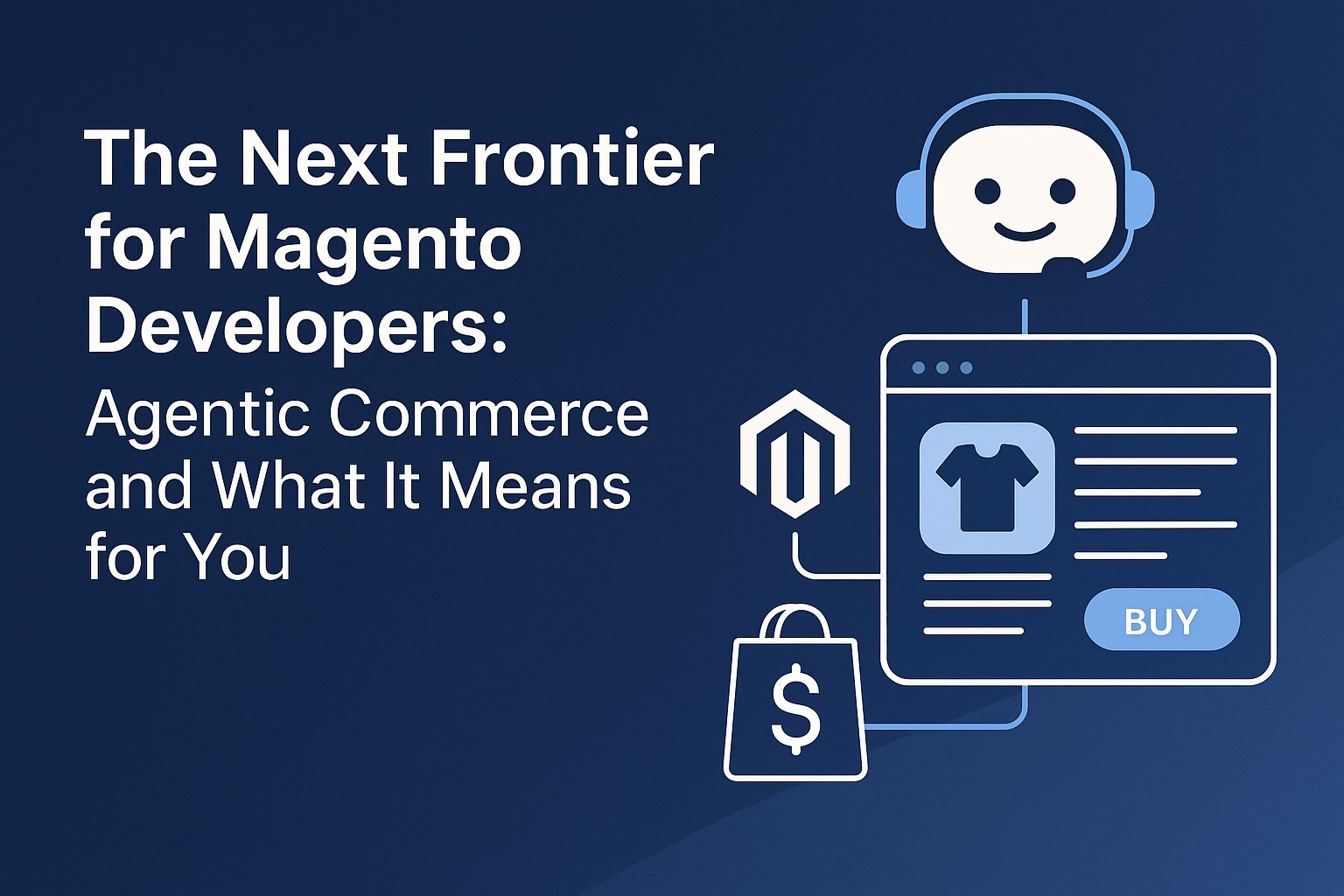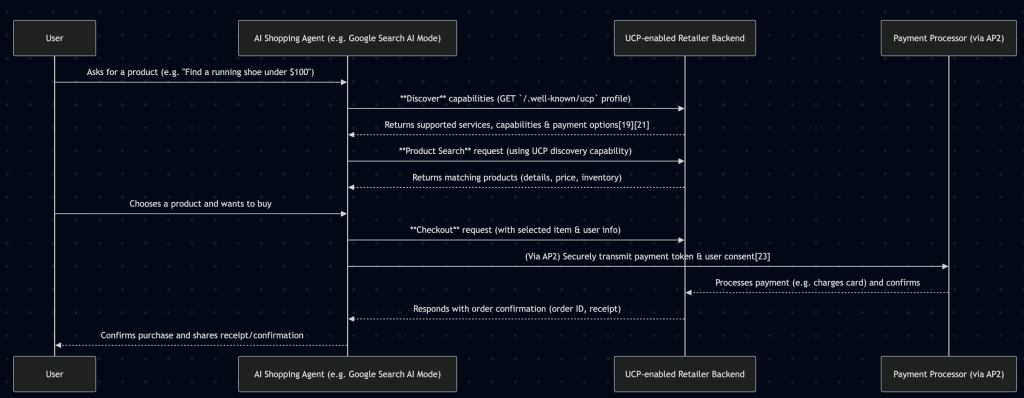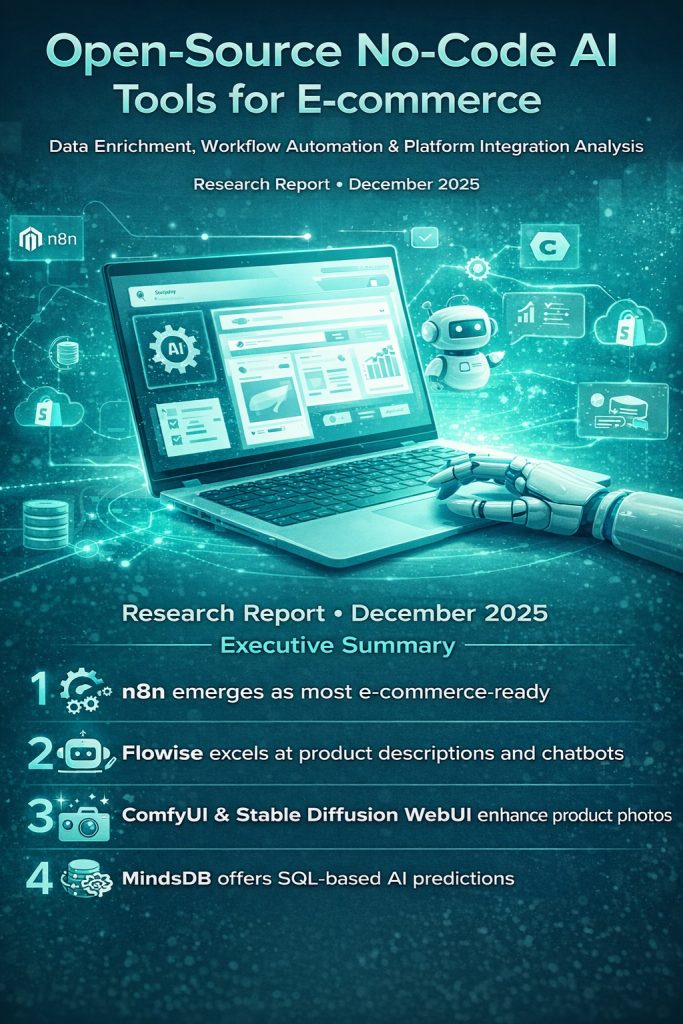1. The Shift: From Browsers to Agents
Magento developers have long been the backbone of eCommerce — building fast, flexible stores with complex product catalogs, layered pricing, and custom checkout experiences.
But a quiet shift is happening.
Commerce is moving beyond the web browser. Instead of typing, clicking, and browsing, customers are beginning to talk to AI agents — and those agents can now buy things on their behalf.
That shift is powered by something called the Agentic Commerce Protocol (ACP). Understanding it early is crucial because it’s not “another API.” It’s a fundamental shift in how commerce systems expose products and handle orders.
2. What Is the Agentic Commerce Protocol (ACP)?
Let’s translate the hype into developer terms.
ACP is an open technical standard (spearheaded by OpenAI and Stripe) that enables AI agents — like ChatGPT or voice assistants — to transact with merchants directly through standardized APIs.
Think of it as a commerce interoperability layer between AI agents and merchant systems.
The protocol defines:
- Product Feeds: Machine-readable catalogs (titles, prices, inventory, variants, images, shipping options).
- Checkout & Order APIs: Endpoints that allow an agent to create and complete orders.
- Delegated Payments: Secure tokenized flows so the merchant stays the merchant of record.
In essence:
Your store provides data and endpoints. The agent provides the buyer interface.
3. Why Magento Developers Should Pay Attention
Here’s why ACP isn’t just “future tech” — it’s relevant right now for anyone building on Magento or Adobe Commerce:
1. New Sales Channel
AI agents become a new type of storefront. A user could say “Order coffee beans from a local roaster,” and an agent could find your Magento store if your product feed is ACP-compliant.
2. API-First Architecture Matters
ACP forces a discipline that Magento teams have often postponed: clean APIs, reliable webhooks, structured product data, and real-time inventory updates.
3. Early Mover Advantage
When ACP support expands, merchants with compliant stores will be discoverable immediately. Early integration can set you (and your clients) apart.
4. Developer Differentiation
Magento developers who understand ACP will be in high demand — you’ll be the one who can make Magento “talk” to AI agents.
5. You Still Own the Relationship
ACP doesn’t replace your storefront or data. You still handle orders, payments, and fulfillment. You remain in control of your merchant logic.
4. Roadmap: Getting Magento Ready for Agentic Commerce
Here’s a step-by-step guide to help Magento developers prepare.
| Phase | Objective | Magento Developer Tasks |
|---|---|---|
| 1. Audit & Awareness | Understand current capabilities | – Audit product data, attributes, and pricing rules- Review API readiness (REST, GraphQL)- Check webhook/event reliability |
| 2. Product Feed Prep | Create ACP-compliant feed | – Build/export JSON feed per ACP spec (title, SKU, price, stock, etc.)- Flatten configurable/bundle products- Automate updates via cron or observers |
| 3. Checkout Endpoint Setup | Build core order API layer | – Implement endpoints like /checkout_sessions and /orders– Support delegated payments- Handle webhooks for order and fulfillment events |
| 4. Security & Validation | Harden the API | – Enforce auth tokens & signatures- Add idempotency keys- Validate agent requests and prevent replay attacks |
| 5. Go-Live & Iterate | Monitor and optimize | – Track agent-driven orders- Log errors and response times- Optimize feed freshness and completeness |
5. Key Developer Challenges (and How to Solve Them)
🧩 Complex Product Types
Magento’s configurable, grouped, and bundle products can be tricky to represent in feeds.
Solution: Flatten structures, create variant entries, and include metadata linking variants to parents.
⚡ Frequent Inventory or Price Changes
Agents rely on up-to-date data.
Solution: Use event observers (cataloginventory_stock_item_save_after, etc.) to trigger partial feed updates.
💳 Checkout Customizations
Most Magento sites heavily customize checkout flows.
Solution: Abstract your logic — build separate ACP endpoints that wrap your internal checkout logic rather than trying to retrofit the current one.
🔐 Security & Fraud Prevention
AI-driven requests add new risk vectors.
Solution: Implement signature verification, idempotent order creation, and token validation to prevent duplicates or spoofed calls.
🧠 Team Awareness
Developers might adapt quickly, but operations and support teams need to understand agentic orders.
Solution: Tag “agentic” orders in the admin UI, train fulfillment teams, and adjust dashboards.
6. The Bigger Picture
Agentic Commerce is not about replacing your storefront — it’s about extending it.
Today’s discovery happens via Google. Tomorrow’s might happen via AI agents.
If your catalog isn’t structured for machines, you’ll be invisible in this new ecosystem.
Magento has always been about flexibility and control. ACP just makes those values more important — it rewards stores with clean data, good architecture, and strong APIs.
7. Final Thoughts
For Magento developers, ACP is both a challenge and an opportunity.
You can:
- Audit and clean your data.
- Refactor toward API-first design.
- Build a Magento module for ACP integration (feed + checkout + webhooks).
- Position yourself and your clients as early adopters in AI-driven commerce.
Commerce is becoming conversational.
The question is — will your store be part of that conversation?
👩💻 Want to Go Deeper?
I’m preparing a Magento 2 module blueprint for ACP readiness — including feed exporters, endpoint definitions, and webhook handling patterns.
If you’re interested, follow AgenticCommerce.dev or connect with me on LinkedIn to get notified when it drops.



